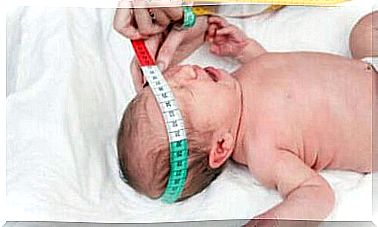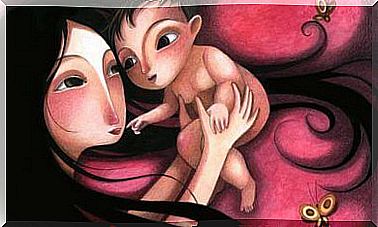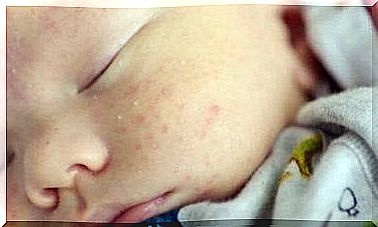Help! My Child Has Worms, What Should I Do?

Today we will talk about how to find out if your child has worms. We also tell you what you can do to prevent it and how to treat it.
These worms are also called pinworms or roundworms. The scientific name is Enterobius vermicularis. They are small parasites that sometimes infect children.
They look like a small, thin worm about 1 centimeter long, are whitish or gray in color and move. They settle in the colon, anus and, in the case of girls, in the outer part of the vagina.
Symptoms of worms in children
- The most common symptom in children is intense itching in the area around the anus.
- Girls may also experience itching in the vagina as it is very close to the anal area. Infection in or around the vagina is quite common.
- Girls may also have unusual vaginal discharge.
- Small children may have pain or a burning sensation while urinating. This can confuse a worm infection with a bladder infection or another type of urinary tract infection.
- Itching occurs or gets worse during the night as the female worms lay their eggs. They can lay up to 20,000 eggs per day.
- If children feel the urge to scratch, a rash can occur.
- The itching often prevents the child from falling asleep or waking up in the middle of the night.
- Lack of appetite. The child may have abdominal pain. Fatigue from lack of sleep can also reduce appetite.
- Apathy. Difficulty sleeping because of the itching results in the child waking up exhausted.
- Teeth grinding during sleep is usually something that occurs when someone is stressed, but in children with worms, it happens because of the discomfort of intense itching.
- Some children also experience a fever.
How do children become infected with worms?
The infection starts with itching. The child scratches itself. He does not yet know the importance of washing his hands or the possibility of contracting diseases and puts his hands in his mouth.
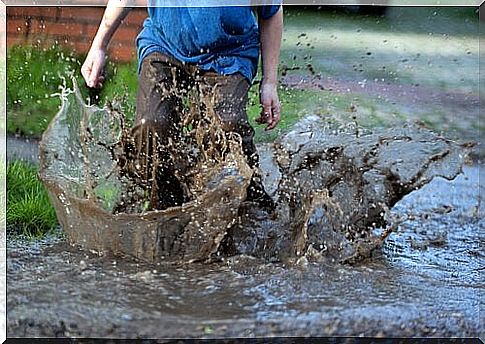
It can also happen that the eggs of the worms are transferred from the hands to any object. If the child then puts that object in the mouth, he can also become infected. Children often put objects in their mouths in their early years of life. Other family members can also be infected by these objects.
How do you know your child has worms?
There are several methods to find out. The simplest is to look at the child’s stool. If there are small worms in it, it is infected.
The mother can also carefully observe the area around the anus by holding the child’s buttocks apart. If you do this in the evening or at night, the mother will probably be able to see the parasites if the child is infested with worms.
Another method is to use strips of a self-adhesive paper made for this purpose. The doctor places the paper on the anus and removes it after a certain time. He then looks at the paper under a microscope.
The treatment of worms in children
The treatment of worms in children is quite simple by administering a drug by mouth. It is usually just one dose. Some pediatricians recommend repeating the treatment after about 20 days. This is to remove the parasites that were in eggs and survived the first treatment.
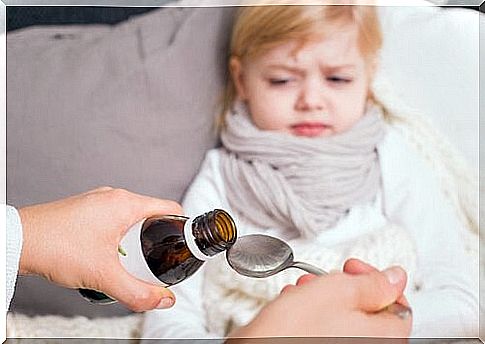
Some specialists recommend treating the whole family to prevent the spread of the parasites. This can be especially important if someone shares the bed or bedroom with the child.
Please note that the medicines used to treat worms are not antibiotics, because worms are not bacteria.
Skin injuries caused by scratching can also be treated. There are soothing and anti-inflammatory creams and ointments for this. In the case of more serious injuries, a doctor should determine if the wounds are infected. If so, he will likely prescribe an antibiotic ointment.
Preventing contamination
Here are some recommendations to prevent worms in children and the rest of the family:
- Do not knock out clothing, because this way you can spread the eggs of the worms throughout the room.
- Wash the child’s sheets and clothes with warm water: towels, sheets, pillowcases and especially underwear. Do this regularly.
- Use antibacterial cleaners.
- Encourage the habit of your child washing his hands after going to the bathroom and before eating. It is important that the parents check that the child is doing this correctly and every time.
- Cut the nails of the finger at and make a special brush for this purpose clean under the nails.
- Prevent the child from sucking on his fingers.
- Teach the child not to put objects in his mouth.

